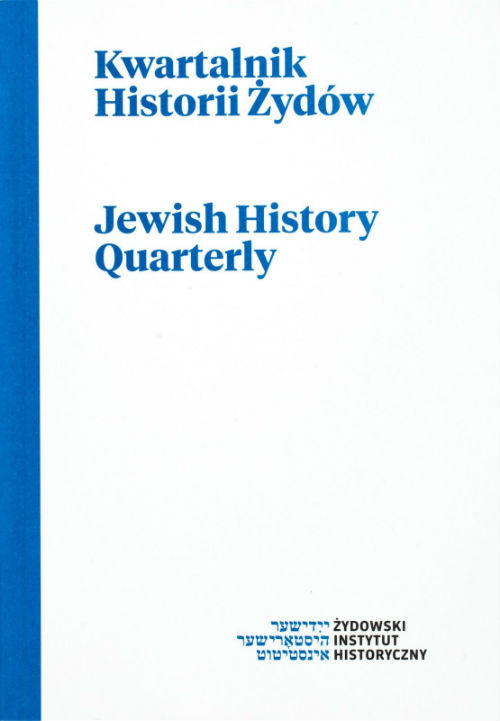Udział Żydów w życiu gospodarczym Wałbrzycha 1945-1968
The Role of Jews in Economic Life of Wałbrzych 1945-1968
Author(s): Paweł WieczorekSubject(s): History
Published by: Żydowski Instytut Historyczny
Keywords: productivity; heavy industry; Jewish miners; Jewish steelworkers; communism
Summary/Abstract: The Jews living in Wałbrzych after World War II actively joined in the town’s economy. Jewish women were the first to organize public transport in the town, while the men were among the first to set up cooperatives. They took jobs in Wałbrzych coal mines, coking plants and steelworks. Some of them took local government jobs. Many helped set up trading enterprises, engaged in crafts, acted in civic and state organizations. Jewish doctors accounted for the majority of local health service staff, and many Jews worked in the courts, with some also working for the security service and the police. The number of Jews working in Wałbrzych institutions, cooperatives and factories, and, consequently, the ratio of working Jews to all the Jewish people in the town and to Poles living and working there kept falling. This was due to a succession of tides of emigration as well as attrition, i.e., deaths or the abandonment of Jewish identity by some Jews. Documents from the late 1960s do not point to an important role of Wałbrzych’s Jews in the town’s economy. In post-war Wałbrzych, which was a centre of the mining, coking and steel industry, the Jews escaped proletarianization, despite the actions of the Polish Workers’ Party/ Polish United Workers’ Party. They preferred to say in their own milieu, most often in cooperatives. Together with the changes pressed by the authorities, such as socialization, nationalization and centralization of all areas of the economy, also the Jewish cooperatives came under the control of the socialist state.
Journal: Kwartalnik Historii Żydów
- Issue Year: 230/2009
- Issue No: 02
- Page Range: 206-220
- Page Count: 15
- Language: Polish
- Content File-PDF

